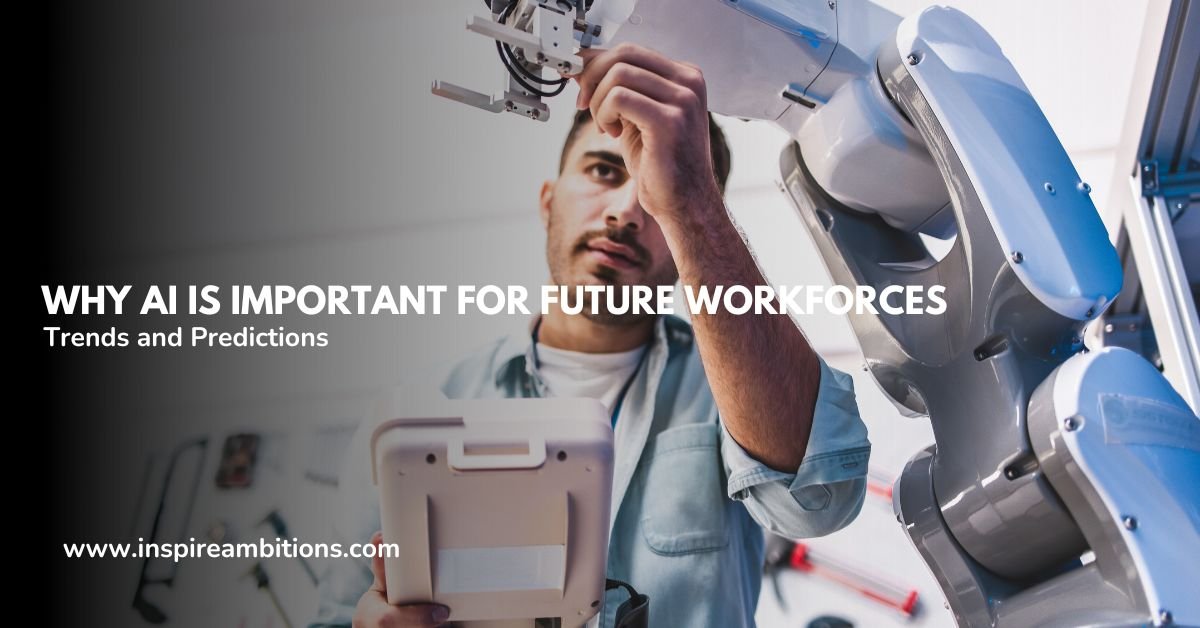Why AI Education is Important for Future Workforces
As the world evolves, so does the importance of integrating artificial intelligence (AI) into the fabric of education. With advancements in AI, we are witnessing a transformative era in pedagogy, one that holds the key to unlocking personalized learning experiences and democratizing education in the digital age.
The potential of AI to revolutionize educational methodologies cannot be overstated, as it provides unprecedented opportunities for tailored instruction, efficient assessment, and access to a global classroom environment.
AI in education serves as a facilitator of more effective learning and a preparatory ground for students to acclimate to a workforce increasingly driven by AI technology. Incorporating AI into educational settings equips learners with the critical skills and understanding to navigate and succeed in a tech-centric professional landscape.
As we delve into the pivotal role of artificial intelligence in education, it’s essential to recognize its significance in improving academic outcomes and shaping the future competencies of the global workforce.
Why AI Education is Important for Future Workforces? Key Takeaways
- Artificial intelligence enhances personalized learning and global educational access.
- AI tools and platforms serve as a bridge between current pedagogy and the digital future.
- Integrating AI in education is critical for preparing students for an AI-driven workforce.
The Role of AI in Modern Education
Education is pivotal, with technology reshaping how you learn and teach. AI in education is more than just a buzzword; it is a transformative force that redefines the boundaries of teaching and learning, adapting to the unique needs of educators and students alike.
Personalizing the Learning Experience
AI enhances education by personalizing learning experiences. Imagine a real-time classroom where your needs are identified, with adaptive algorithms customizing the curriculum to fit your learning pace and style. This isn’t just a vision; it’s a reality in many classrooms as AI’s role in education matures, ensuring no student is left behind or unchallenged.
AI as a Tool for Educators and Institutions
Educators and institutions benefit from AI as it streamlines operations and amplifies teaching capabilities. AI provides tools for education system analytics, automating administrative tasks and enabling teachers to focus more on teaching and less on paperwork. UNESCO discusses the importance of AI in creating effective human-machine collaboration to enhance human capacities.
Emerging Technologies in STEM Education
In the heart of Beijing, EdTech innovations showcase the power of emerging technologies in advancing STEM education. Interactive tutoring systems empower students with hands-on learning, while AI-driven labs simulate real-world challenges, fostering critical thinking and problem-solving skills essential for student success.
AI is no longer just a futuristic concept in education—it’s a current ally that shapes your learning environment daily.
AI’s Impact on the Future Workforce
With artificial intelligence (AI) rapidly advancing, the future workforce will be shaped by those ready to harness and adeptly integrate AI technologies. As AI becomes a pillar of the modern labour market, understanding and developing the necessary skills becomes imperative.
Preparing Learners for the AI Era
To ensure that workers are not only adaptable but also proficient in AI, a strategic approach to learning is necessary. Utilizing advanced AI education frameworks, you can stay ahead in a landscape where machine learning and generative AI are becoming commonplace. Providing hands-on experience in laboratories and centres of learning enables the workforce to apply AI skills in a practical environment, fostering a generation prepared for the challenges and opportunities AI brings.
Enhancing Collaboration and Problem-Solving Skills
Embracing AI does not just mean understanding the technology itself but also using it to enhance collaboration. Mastering AI-driven tools can improve communication with partners and teams, leading to a more innovative problem-solving process. AI can help reduce workplace inequalities by democratizing access to information and fostering a culture where diverse perspectives are leveraged through enhanced collaboration.
- Collaborative Skills: Utilize AI for better synergy in teams.
- Problem-Solving: Harness the power of AI to approach challenges creatively.
AI education is paramount in preparing for a future that’s already unfolding. With proper training and emphasis on collaboration and creativity, you’re set to thrive in an AI-centric workforce.







